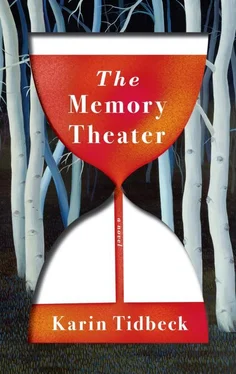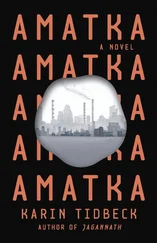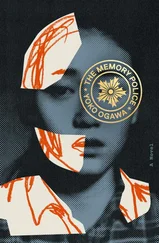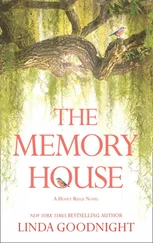“Who are you?” Dora asked. “Why are you bleeding?”
“They call me Thistle, and this is what they do to all us servants. What do they call you?”
“Dora. I know not where I am, and my father won’t speak to me.”
Thistle nodded and took Dora’s hand. “I have been sent to teach you the ways of the Gardens. I will teach you how to speak, and where to hide from our masters.”
Dora looked down at him. “Will you be my brother, then?”
“I will,” Thistle answered.
“Then I will protect you,” Dora said, “as well as I can.”
They embraced, and the curtain fell.
—
When the curtain rose again, Journeyman-Dora and Apprentice-Thistle stood center stage, holding hands. They didn’t look much like Dora or Thistle anymore, just actors dressed in costumes. On either side, Director and Nestor threw kisses at Dora and Thistle. Journeyman’s face was expressionless; Apprentice’s eyes were brimming.
The company bowed and thanked their visible and invisible audience. They cleaned up the stage and themselves, then crowded around the sofa in front of the stage. They looked worn out.
Journeyman walked over to where Dora sat. His eyes were damp. “Can I have a hug?”
Dora let go of Thistle and stood up. Journeyman wrapped his arms around her. He smelled of greasepaint and musk and fresh sweat. He sniffled and drew a shuddering breath against her shoulder. Dora gently patted his back.
Journeyman eventually let go.
“I’m sorry,” he said, and dried his eyes on his sleeves. “I get emotional. Playing you was… you seem so calm, but your feelings are… these huge, slow waves. I was too small for them. You’re magnificent.”
He gave her another quick hug and a smile, and sat down in a chair. Dora stood where she was, stunned.
“We call it ‘bleed,’ ” Director said. “A strong character—or a strong story—can bleed into your own emotions. This isn’t acting, love. We become the characters. We become the story. Journeyman was you. And apparently that was quite a ride.”
Apprentice was standing behind the sofa, uncharacteristically quiet, hands on Thistle’s shoulders. Her eyebrows were knotted, her jaws working.
“And it looks like Apprentice is bleeding a little as well,” Director said, “no pun intended. They’re young. It gets easier when you’ve done this for a while.”
“Thank you for letting us play your past,” Nestor said. “It was a nice change from all the epic stories that we usually have to stage.”
“Indeed,” Director said. “You are a part of the tapestry now.”
Thistle fell asleep on the sofa. Dora went back down to the pond. Little creatures rustled in the grass. She crouched on the beach, stirring her fingers in the water. The sound of footsteps made her turn around. She recognized Journeyman’s scent. He crouched down next to her.
“Before I played you, I thought you were just slow.”
Dora waited.
Journeyman dipped a hand in the water. “I didn’t understand that with slowness comes clarity. That you see everything more clearly, feel more keenly than any of us. When I sat there under the tree… I have never felt peace like that. And when the others came onstage, it was like an explosion. I wanted to scream, I’m not done! Let me be! I don’t know how you can stand it.”
Dora looked at her fingers in the water.
“And now I did it to you,” Journeyman said. “Talked your head off. I’m sorry.”
Dora looked up. Two glowing orbs hung in the sky. Journeyman had changed position.
“I learned,” Dora said. “How to move fast. I just need to slow down sometimes.”
Journeyman’s hand was on her left forearm. His fingers ran up and down her skin in a way that made something shift in her belly.
“You’re beautiful,” he said.
His scent had changed.
“Is Journeyman your own name?” she asked him.
“I gave mine up,” he replied.
Dora took his hand and raised it to her face. Little hairs on his wrist tickled her nose. She felt the thin skin on the inside with her lips. He gasped. She ran her hand in under the sleeve on his shirt and touched the crook of his arm, brushed her fingers over a little mole there. His smell, the sound of his uneven breaths, the skin under her hand. It seemed to flicker somehow, as if he wasn’t set in his form.
“Is this your own shape?” she asked.
“It was, to begin with.” Journeyman let out a long breath.
His face became a blur, like a picture overlaying another, and another, and another: thin shapes, thick shapes, rugged, soft, masculine, feminine, androgynous, altogether alien. The only firm points were his irises, deep brown and constant. When he spoke, it was with a choir of voices.
“I am more shapes than you can imagine.”
He solidified into the youth he had been before.
“Do you like it? This self?” he said with the clear baritone he had used before.
Dora nodded.
Journeyman slipped a hand around her waist.
Dora removed his hand. “No. I need to be alone now.”
Journeyman drew back. “Of course. I’m sorry.”
When his steps had receded, Dora lay on her back by the pool and stared up at the stars. She walked through the memory of him moment by moment—sight, touch, smell, sound—until she could rest in them. He had no form, yet a form: warm, musky. He had wants. And he wanted her but demanded nothing. Dora could rest in that, too.
The station consisted of a short platform and a tiny wooden station building with a sign that read frostviken. It lay in a shallow bowl, a bog surrounded by mountains. Augusta had been on the train for a long time; dawn lit the sky from below. The cold air carried a smell of herbs and wet grass. Augusta was the only one to disembark. A sharp whistle blew, and the train trundled off into the distance.
A dirt road ran from the station building and out onto the bog. Augusta walked down the road. Before long, it ended in front of an abandoned house whose roof had fallen in. There was nothing for it but to go out into the wilderness. So, she was here. Phantasos had come here. She would find him and learn his secrets.
“Phantasos!” she yelled into the air. “I have come for you.”
She walked across the bog calling his name, shivering in the damp cold.
The sun rose and drowned the world in golden light. The bog was vast, dotted by twisted birch trees. White-tipped grass edged the pools. Here and there, little plants bore flame-colored berries that tasted spicy and sour-sweet. Augusta’s shoes were soaked through from slipping into the wet hollows that opened up where the ground had seemed solid. She could no longer feel her toes. As the morning passed, stinging insects woke up: little gnats, larger flying things, and a huge fly that stuck itself to her hand and which she had to scrape off. It was maddening. Augusta trudged on toward the nearest mountain, but it didn’t seem to come any closer. It must be enormous.
“Phantasos!” Augusta cried out again and again. “Lord of the Gardens! I call you by your name. Show yourself.”
It was midday, and still chilly, when Augusta spotted the old man. He was dressed in rubber boots and trousers and a warm-looking brown sweater, and carried a bucket. He leisurely made his way across the bog, avoiding the larger pools. He halted when he saw her and tilted his head. Then he headed her way, stopping here and there to pick something from the ground. Only when he came close did he straighten and look at Augusta. He was wiry, his blue eyes cold in a face sunburned many times over.
“Greetings, old man,” Augusta said.
The man studied her for a long moment.
Читать дальше










![Карин Тидбек - Аматка [ЛП]](/books/438406/karin-tidbek-amatka-lp-thumb.webp)

